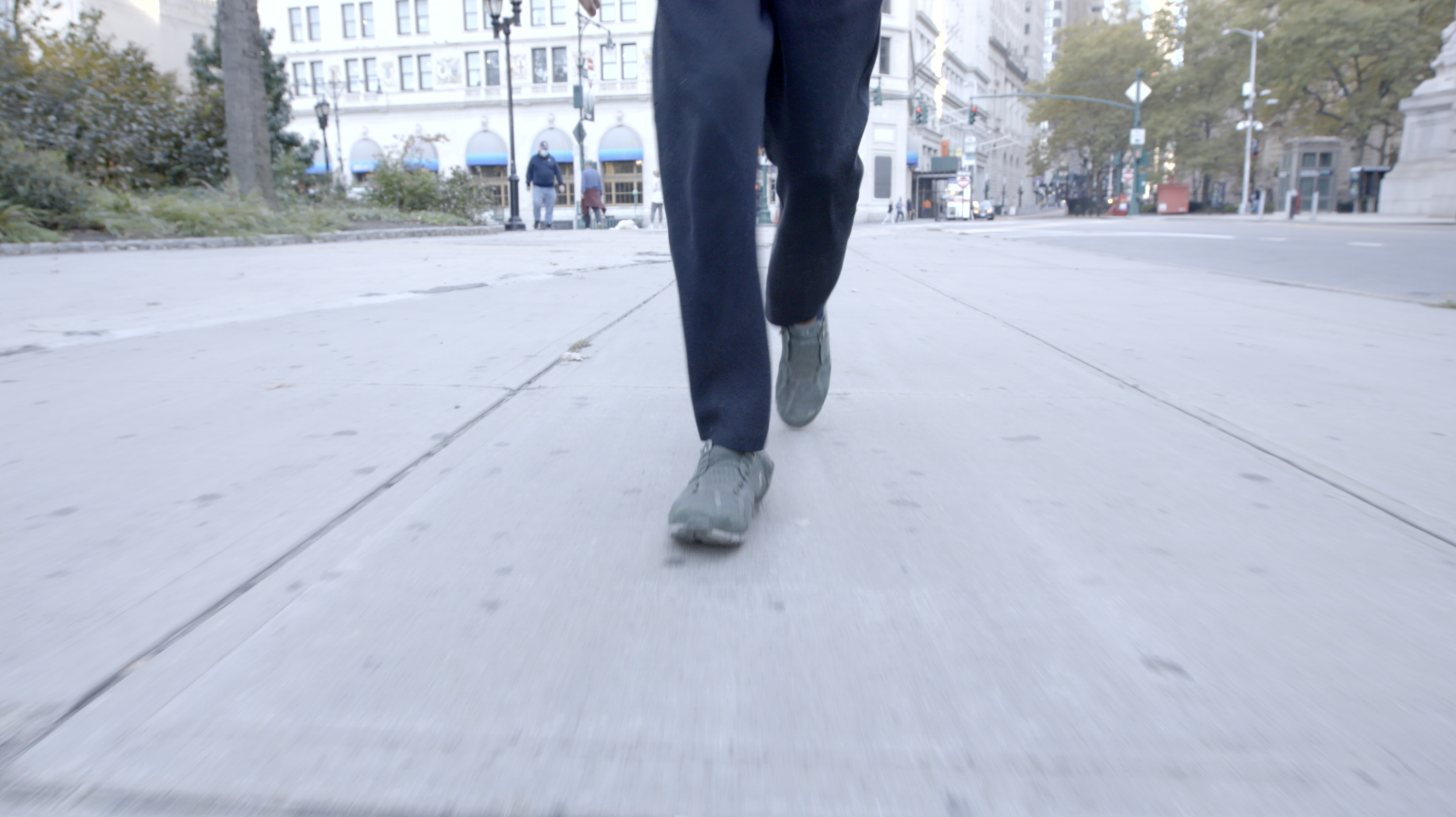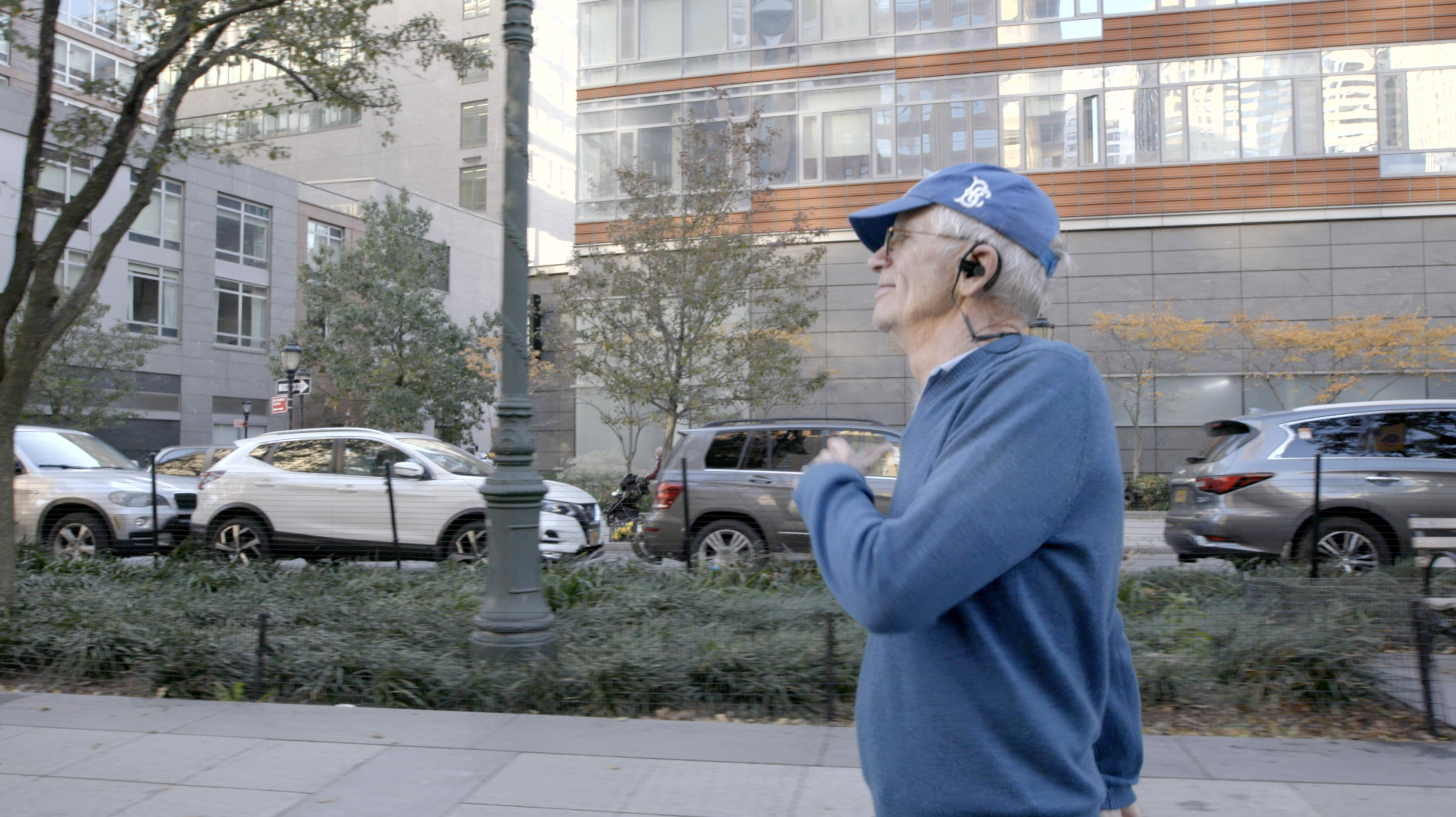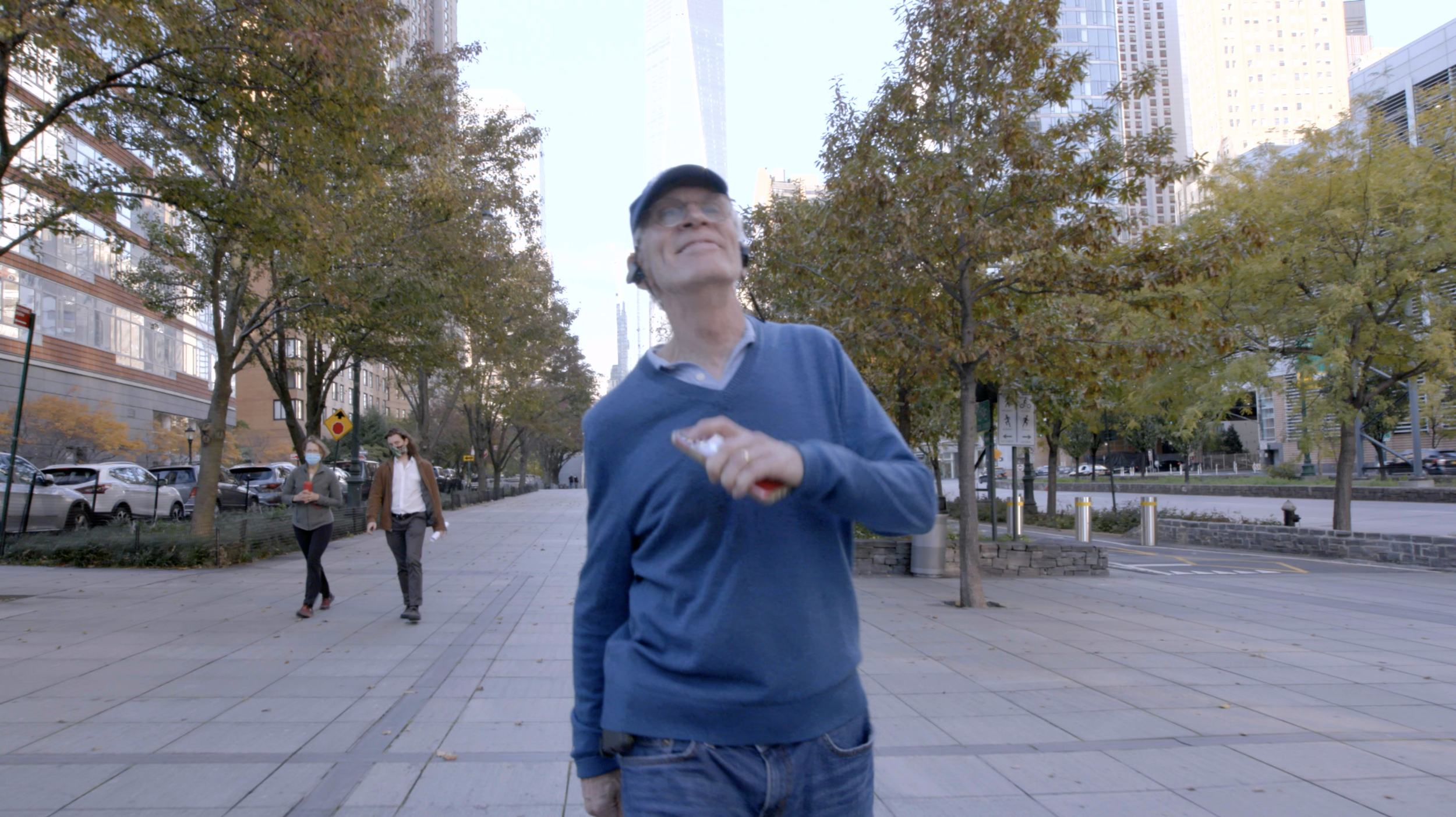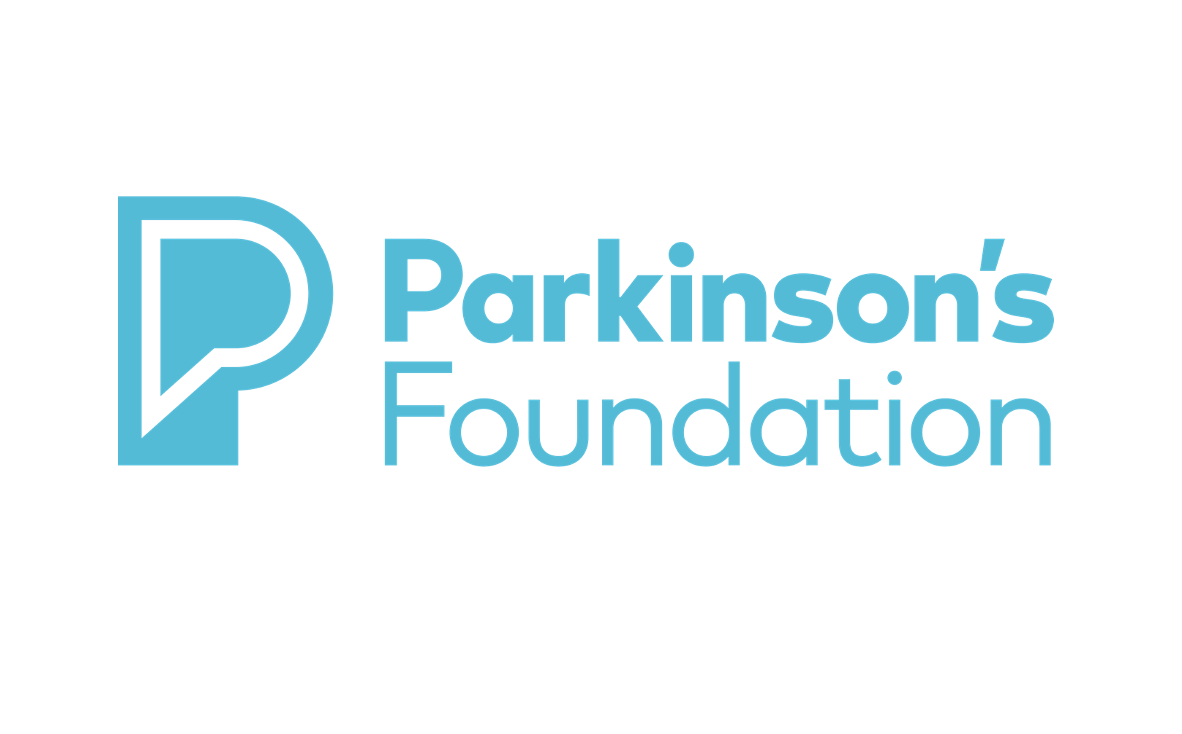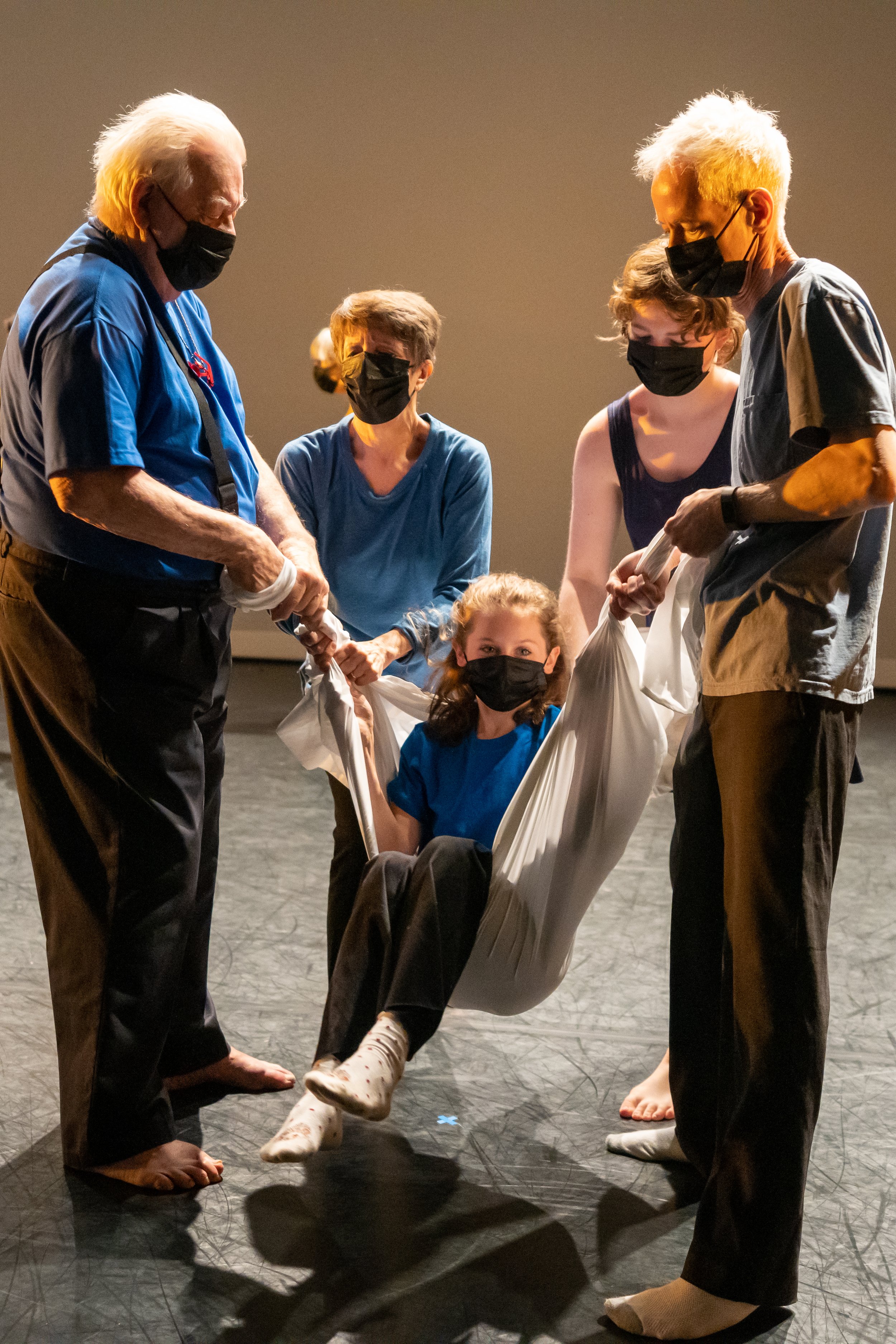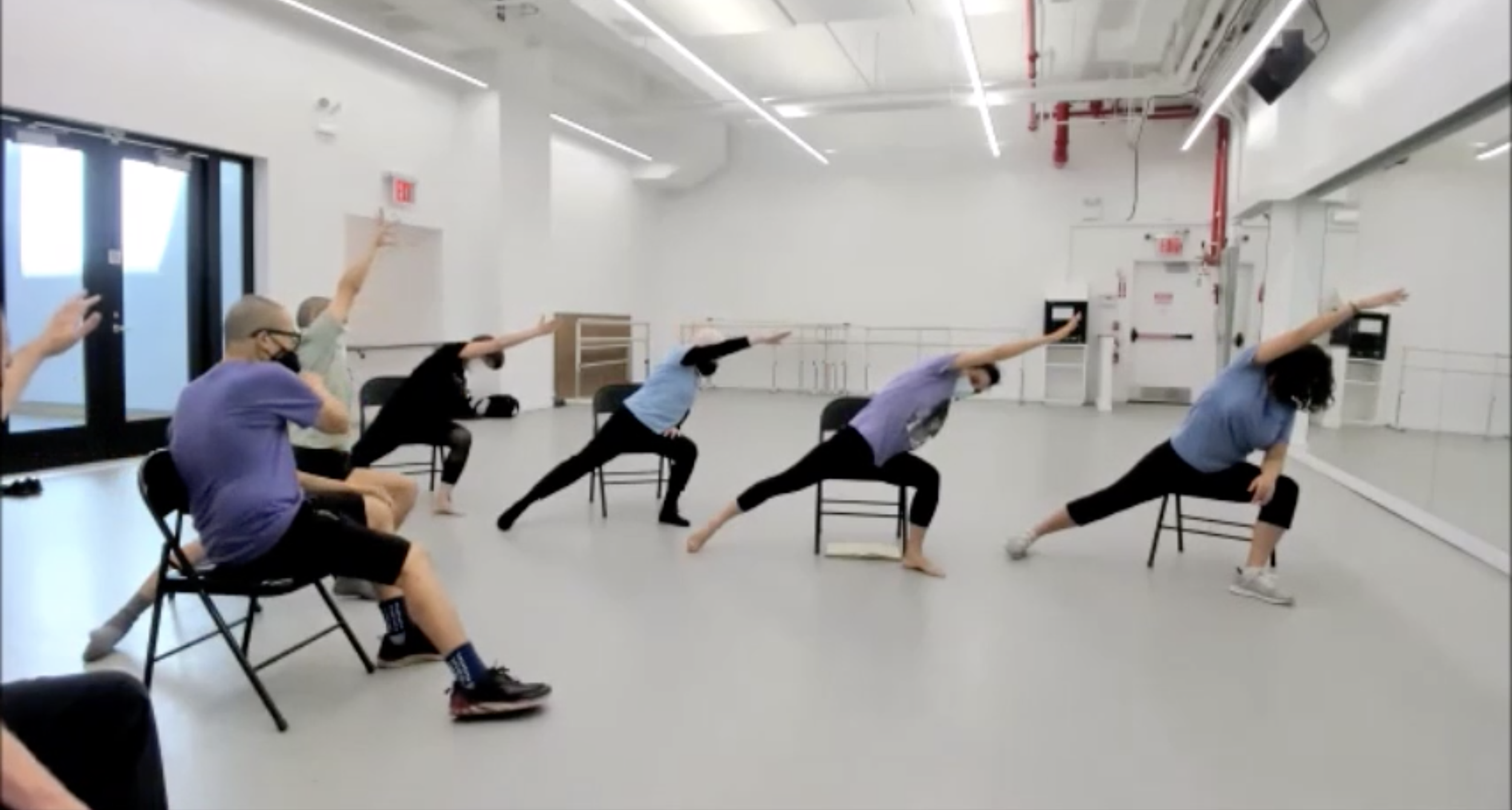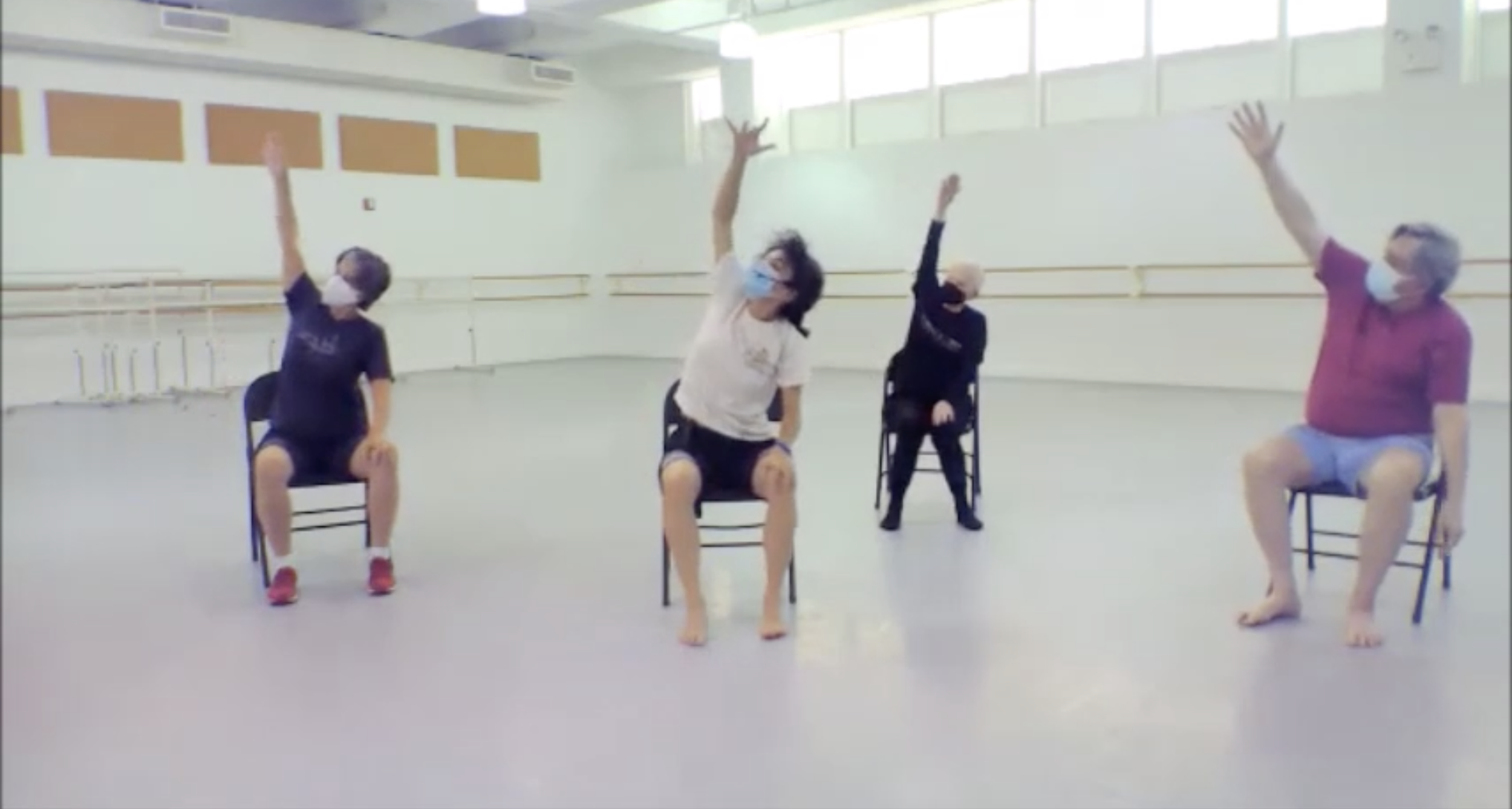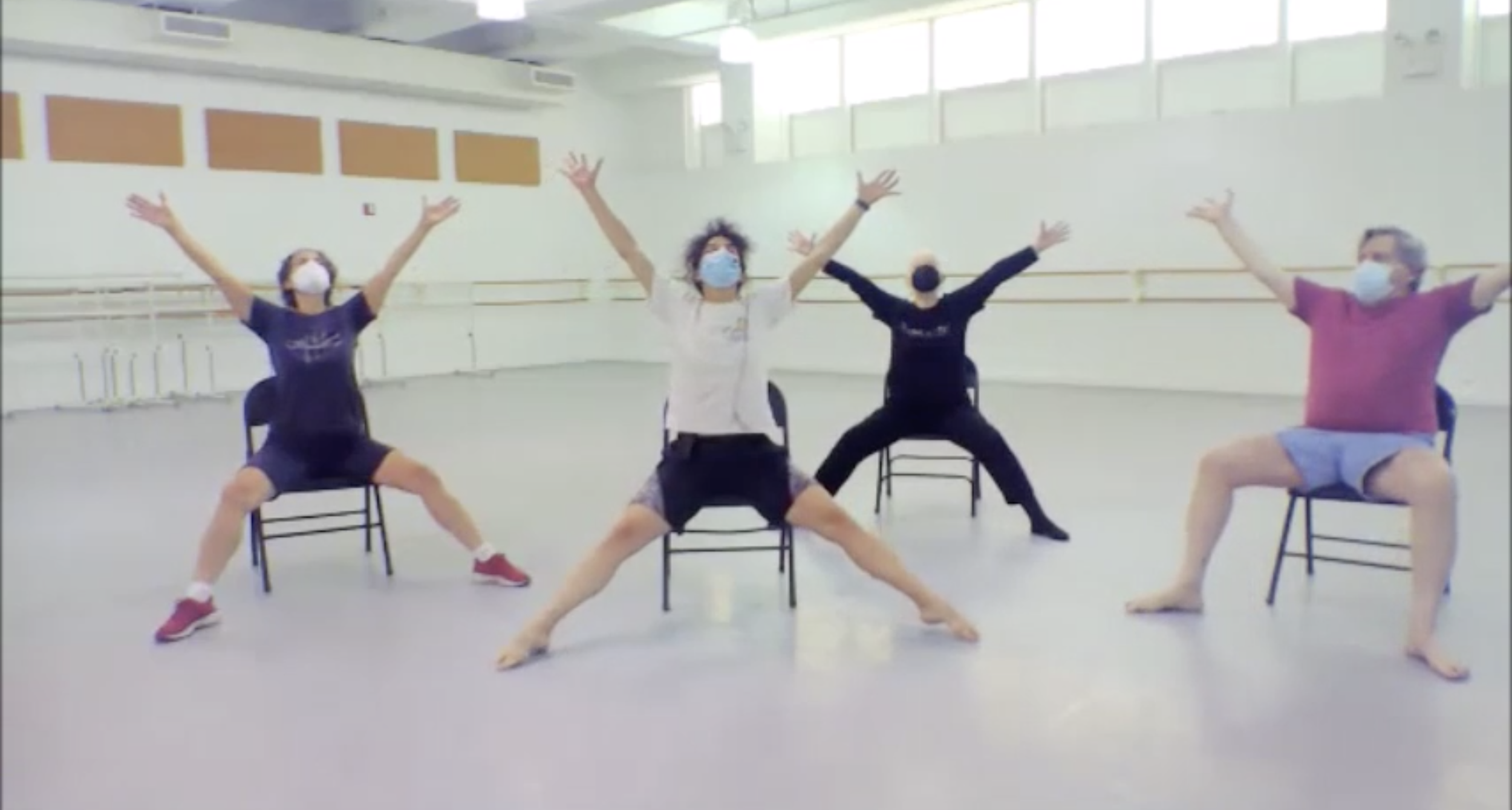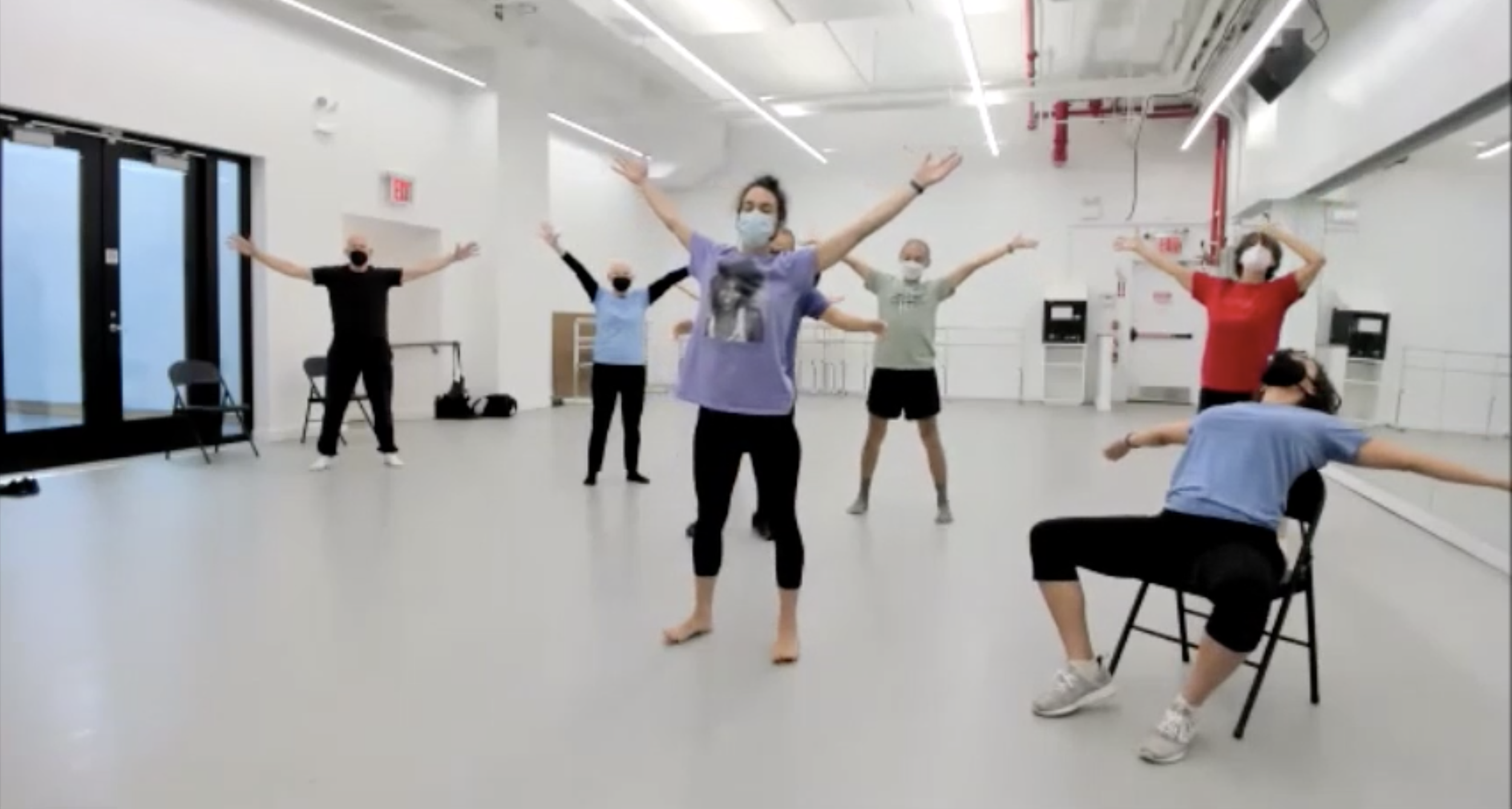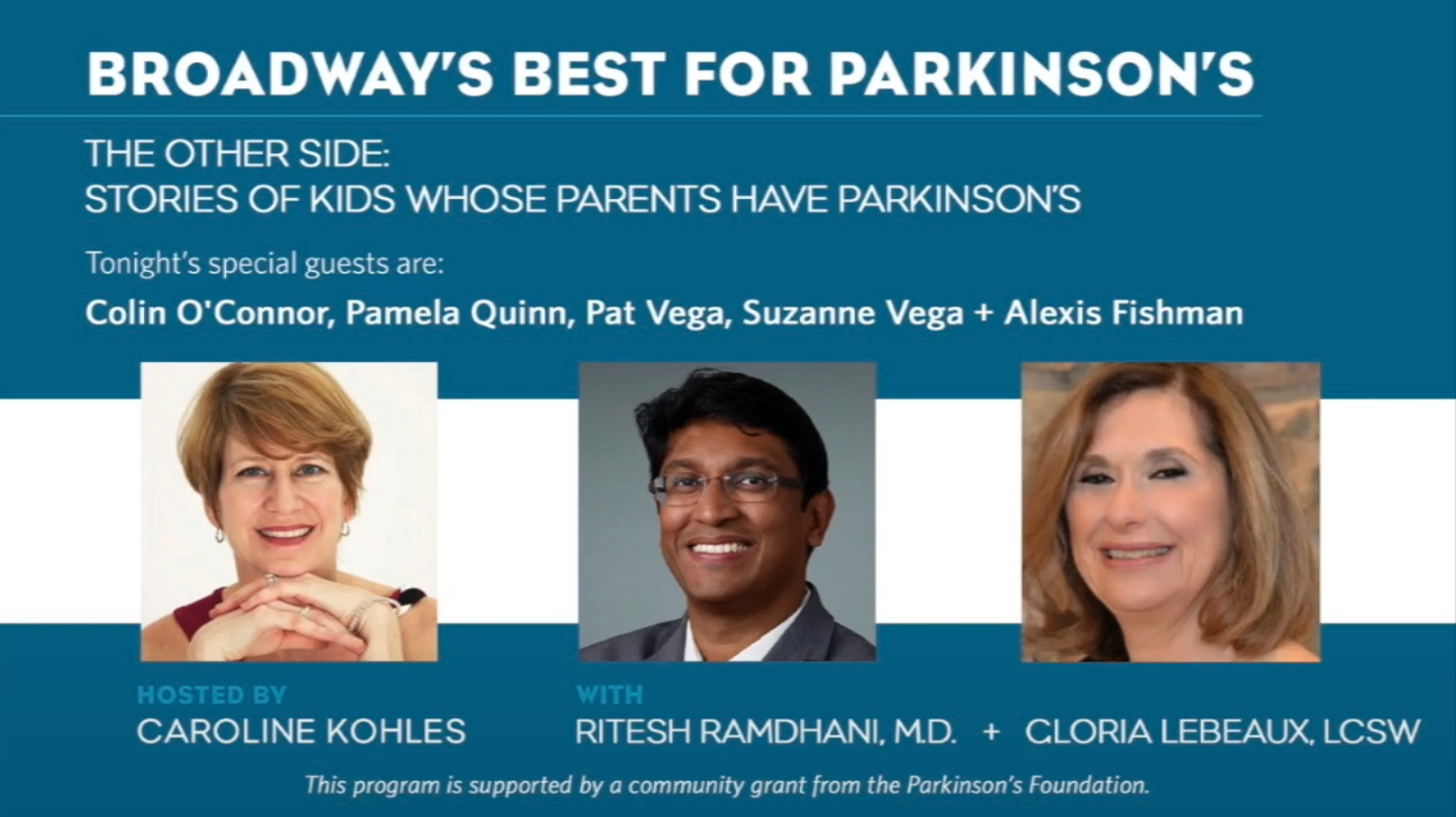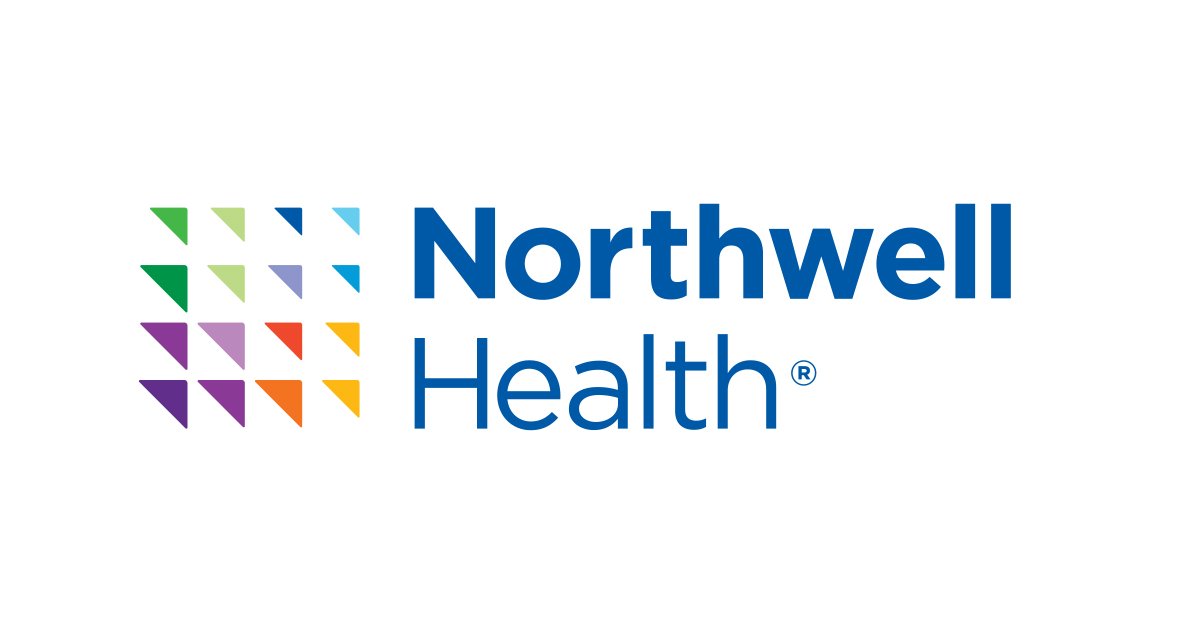Dear Friends,
Thank you for another year! Although we are still navigating our hybrid lives, nevertheless, we are coming back inch-by-inch.
For PD Movement Lab in 2022 this involved the completion of a clinical trial, the creation of new choreography, and a switch to hybrid classes.
In the trial, PwPs improved the coordination of their walk through a new online program. In two dances, PwPs (including myself) pushed their physical limits, while collaborating with much younger counterparts. And with the switch to hybrid dance classes, in-person students improved mobility thanks to more personalized instruction, while consistent attendance from online students created a unique form of community.
None of this would have been possible without the buy-in of PwPs and help from a multitude of collaborators. Every single thing we did had at least one major partner. Together they supported the growth of the Lab and the growth of my work over a period where my own Parkinson’s created new challenges and obstacles for me. Thank you to all of you, and to everyone who strives to make the world of Parkinson’s a better place. I hope all of you find everything below to be a reminder of what we can achieve together!
Yours,
Pam
PD Movement Lab 2022
Year in Review
Gaitkeeping
This summer, in collaboration with Rutgers University & faculty from the Robert Wood Johnson Medical Center, PD Movement Lab ran a pilot study on a new online program called Gaitkeeping. Gaitkeeping’s goal is to help people with Parkinson’s better coordinate their walk and prolong their physical independence.
The study was funded by a community grant from the Parkinson’s Foundation.
We cannot say too much, as we are still organizing the data, but we are excited to share the results. We hope to make Gaitkeeping available to more people early next year! If you are interested in finding out more, you can fill out this form:
Choreography
Crossings
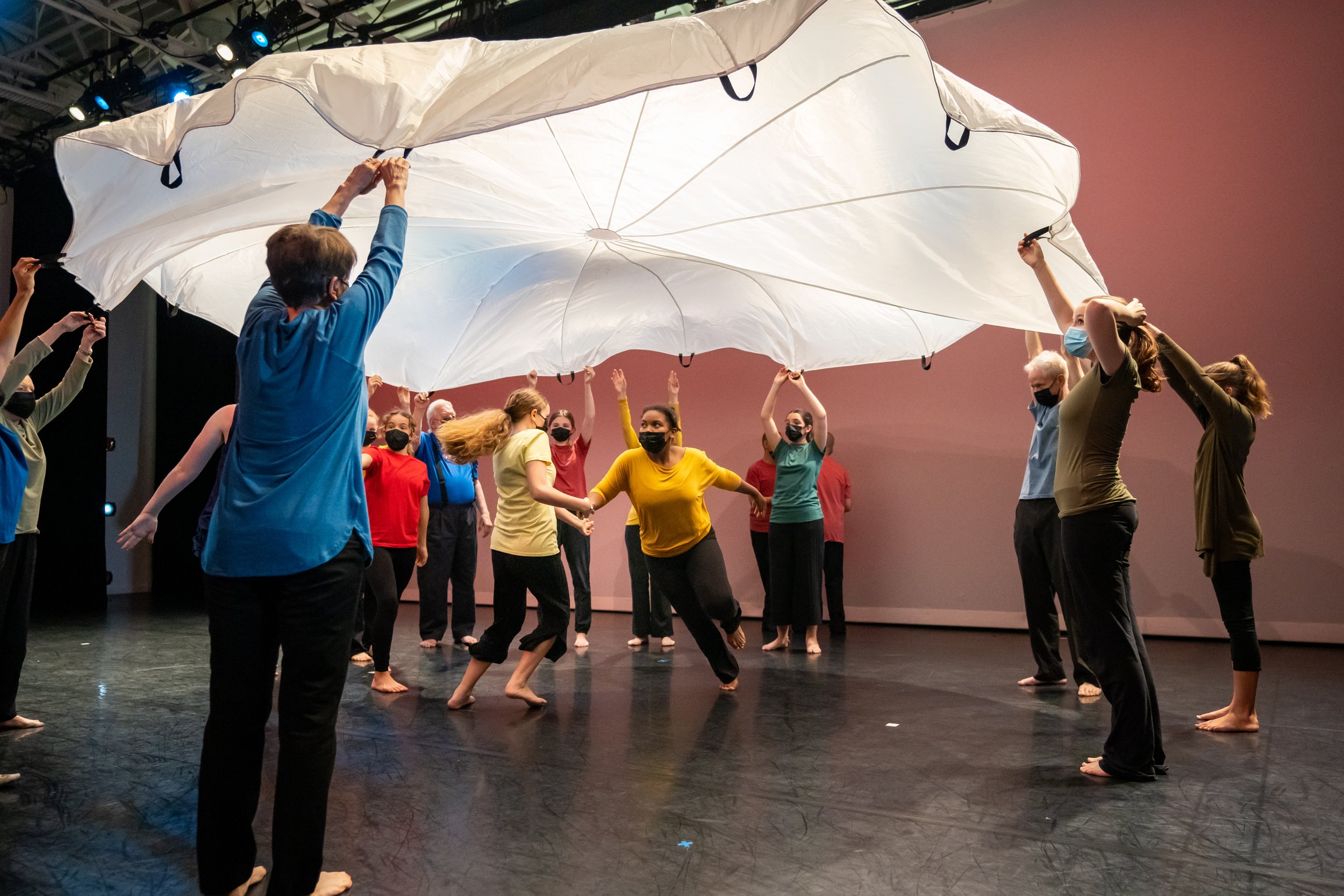
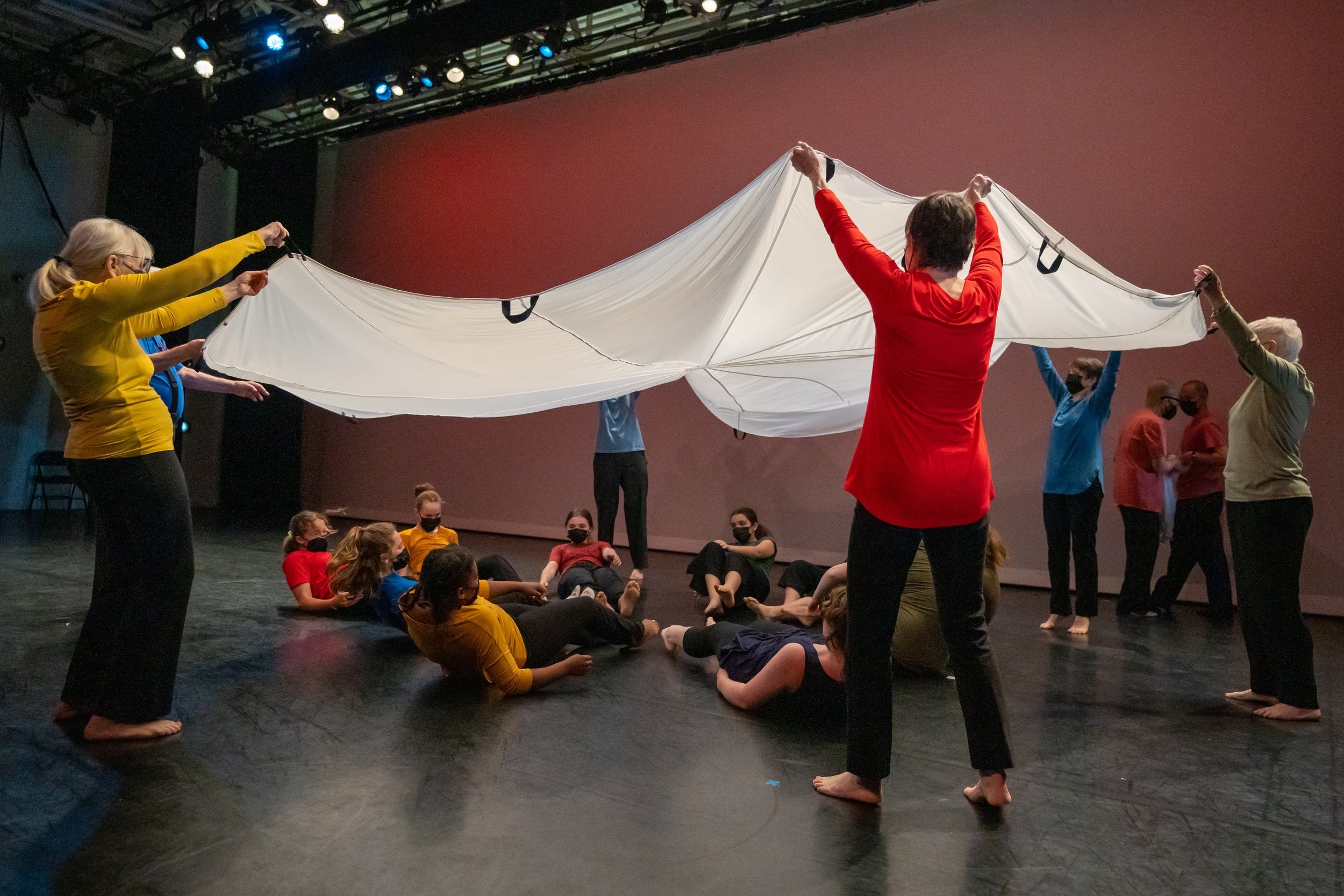
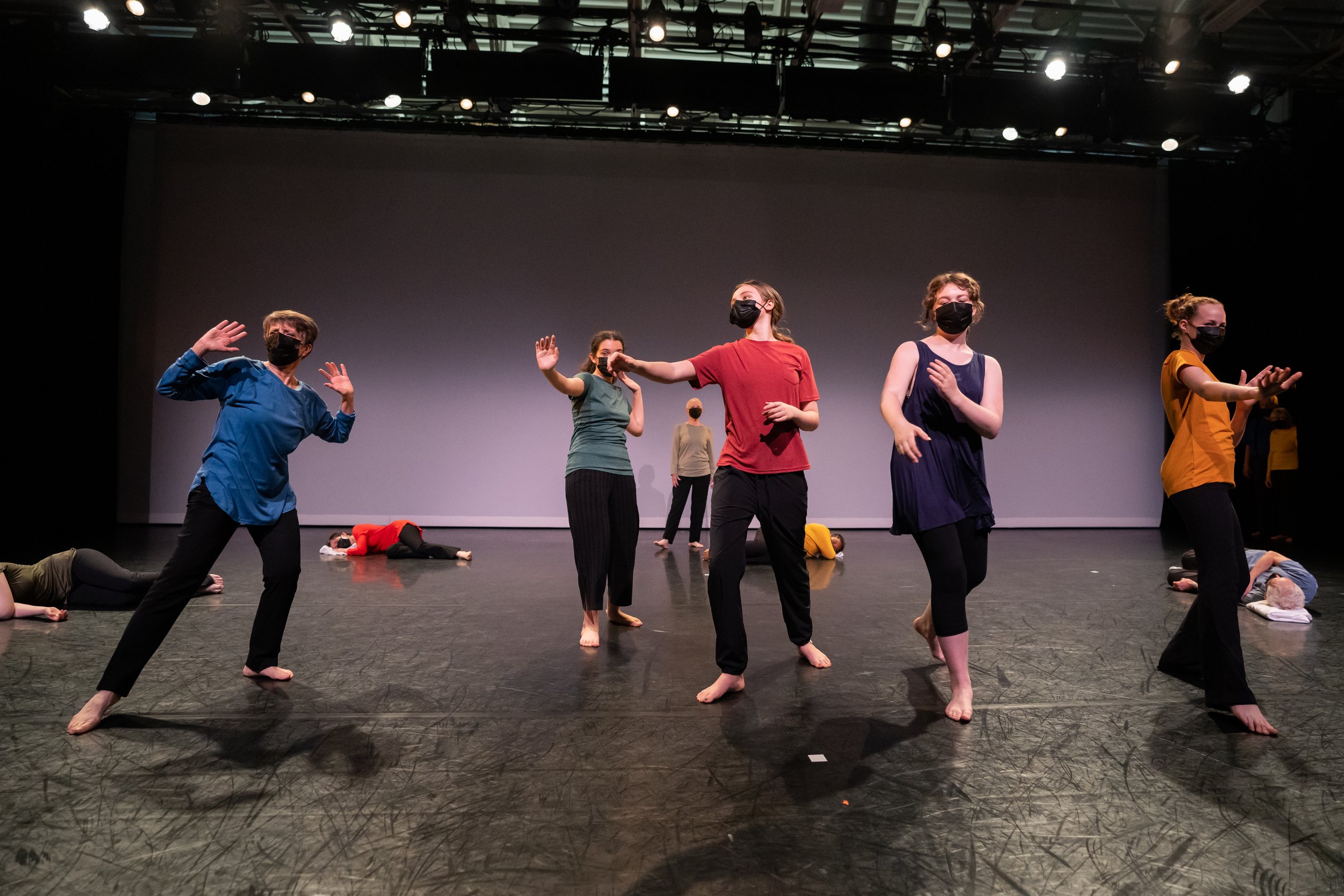
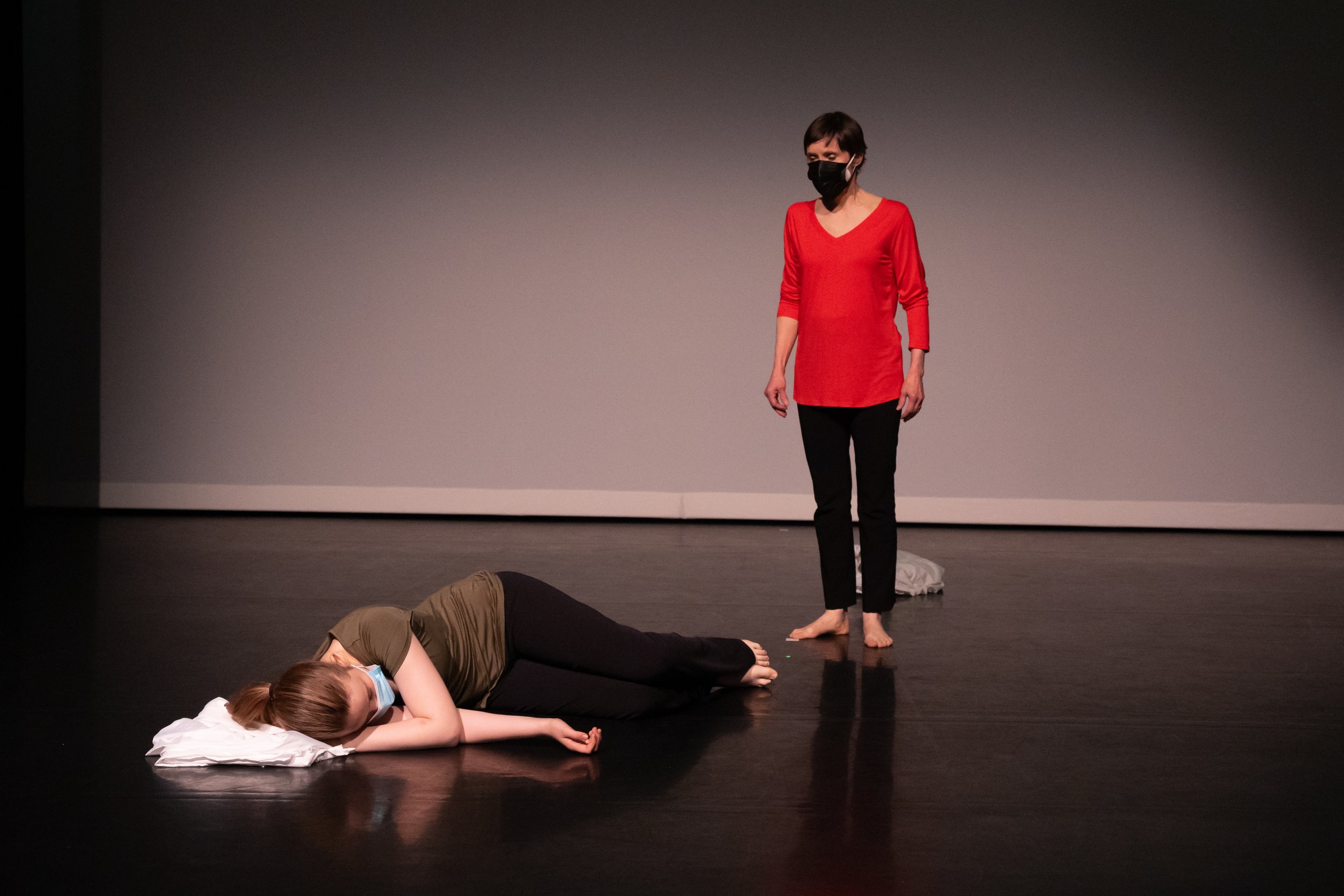
Crossings was a piece that featured a group of 4 PwPs, 3 volunteers, and a group of 10 teenagers that explored themes of isolation from the pandemic. Dance for PD commissioned PDML to create the dance for Mark Morris’s 20th Anniversary Dance Center Showcase.
The people with Parkinson’s used props, like billowing sheets, to amplify the visual effects of their movements, while the teenagers weaved in and out of them.
Watching the PwPs work through the physical challenges of the choreography, gave the teenagers more understanding and empathy for PwPs. And the process of working towards a shared goal brought both groups together in a way that would have never happened otherwise.
Taut & Tender

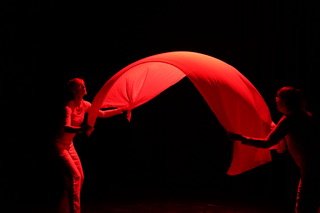
Taut & Tender was a demanding piece I composed and performed with Rachel Lee Whiting. Rachel asked me to create this dance for her thesis on dance and disability, which explored how the movements and experiences of disabled people can create new realms for physical exploration and meaning. We ended up composing the piece together.
There was a lot of pushing and pulling with both desperation and affection, and there were several moments where I balanced on top of her body! It reminded me that sometimes we all underestimate our own physical ability.
Hybrid Classes
This year with the support of Dance for PD and the JCC Manhattan, all PD Movement Lab classes went hybrid. With the return to in-person instruction, students were able to receive more individualized feedback which helped improve the functional aspects of their movement, while dancing with remote participants from around the city and world created a unique sense of community.
This combination was a joy to experience. To now have people moving with me face-to-face gives me so much energy, while continuing to see the people from all over the US and abroad I have met through the digital realm has been a pleasure.
Finally, this year I also began teaching the structure of the PD Movement Lab class to other teachers. Mor Mendel has done a fantastic job! I look forward to building on this development to help DFPD and the JCC expand their programming, and their ability to offer PDML.
Challenges: Voice
One aspect of Parkinson’s that can be frustrating is the way it keeps changing. Just when you think you have a relatively new symptom under control, another one raises its ugly face, demanding attention.
Over the course of the pandemic the weakness of my voice has been this new symptom for me. Both my vocal volume and expression have noticeably decreased. It has affected everything from my family life to my class. This shaky voice can make me self-conscious, and it can make me appear sadder, less enthusiastic, and weaker than I really am. Perhaps the most frustrating part is that there is no discernable pattern to its ups and downs! Some days it is good, others it is not, and it refuses to adhere to the on/off cycles of my medication.
I did LSVT Loud, but the effects eventually faded, and I switched to using a microphone when teaching.
Does anyone have any other suggestions they are willing to share?
I plan to continue to experiment with new ways to tackle this problem in the coming year, and I will keep you all updated!
Speaking
JCC’s Broadway’s Best
The Other Side: Stories of Kids
Whose Parents Have PD
If you are interested in getting a perspective on what it is like to be a PD parent of younger kids, or listening to my son Colin’s experience of being a child to a PD parent, you can listen to this panel. I spoke about the need to limit information about Parkinson’s, while at the same time staying truthful, and Colin spoke about how looking back on his childhood, he now sees many of my technological ineptitudes as a result of my PD.
The panel was part of Broadway’s Best—an ongoing series of panels about living with PD, hosted by Caroline Kohles of the JCC and funded by Northwell Health.
APDA “Ask Me Anything”: Decades with PD

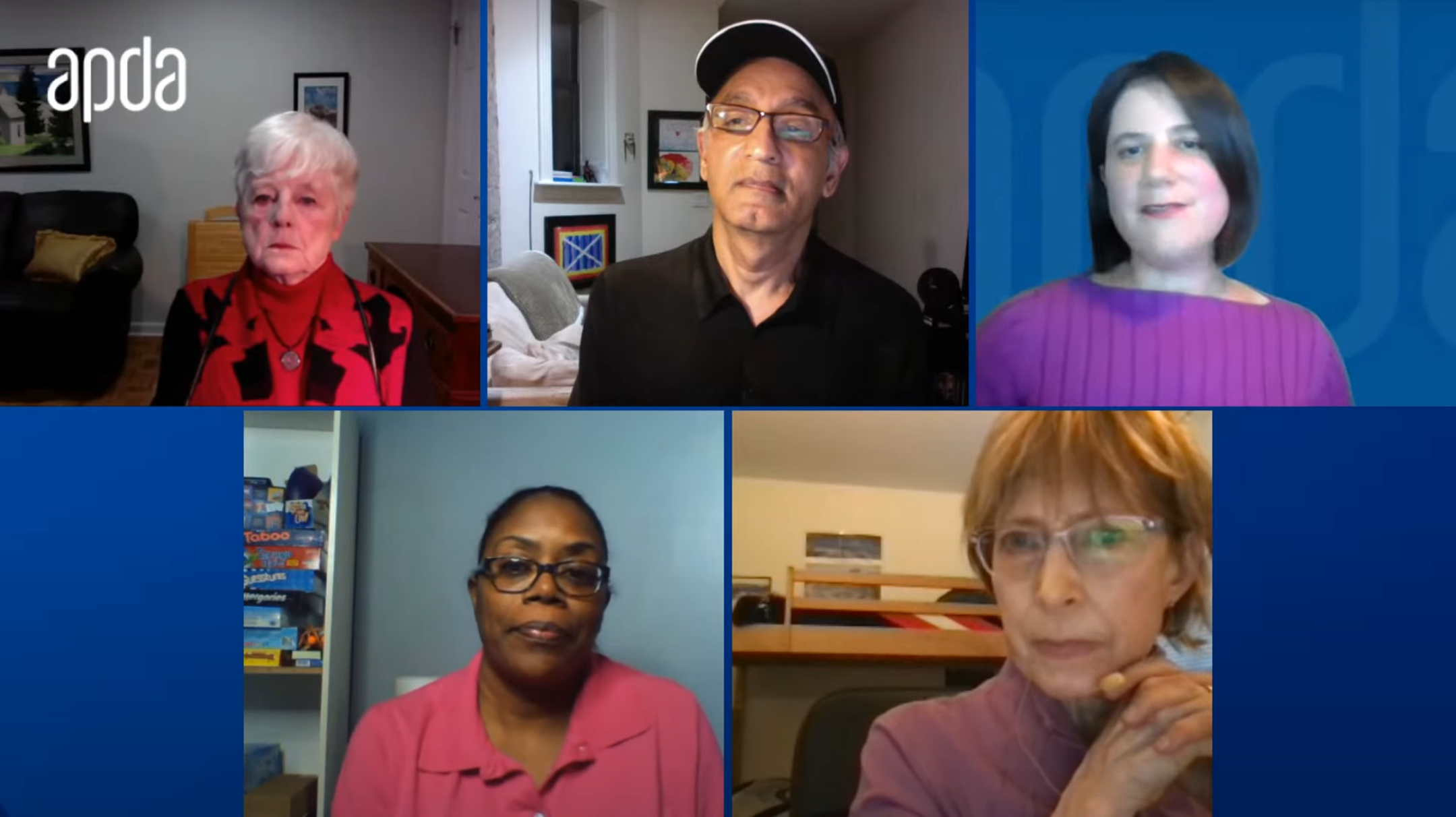
This was a panel discussion with Dr. Rebecca Gilbert of the APDA, that featured four people who had had PD for over a decade: a photographer, a teacher, a PD researcher, and me. The one thing we all had in common was feeling lonely after our diagnosis. We would have faired better if we had sought out other people with PD who were the same age as us sooner. You can listen to the whole thing here.
If you want, you can also read my Davis Phinney Foundation talk I gave last year that inspired the creation of this panel. It is about what I would’ve done differently (and what I would do the same) if I were diagnosed again.
Special Thanks
This year recap would not be complete without acknowledging the people and organizations who support PD Movement Lab. Thank you!
JM, Dave
and all the Gaitkeeping study participants
These people were the PwPs who lent their time and energy to make Gaitkeeping possible. JM and Dave volunteered to be filmed in the making of Gaitkeeping and were phenomenal on screen. The study participants (I am not listing your names for privacy reasons) were the people who gave their time and effort to try the program out. Thank you to all of you for being open to what I had to offer. I believe your efforts will ultimately help many others besides yourselves.
Colin, Jeff, Roseanne, Natalie & Lauren
This was the team that made Gaitkeeping happen on an organizational level. My son Colin produced and directed Gaitkeeping based on my personal and professional experience with walking.
Jeff, Roseanne, Natalie and Lauren were the all-star team at Rutgers that brought academic rigor and organization to the clinical trial. Thank you all for your efforts! I look forward to continuing to work with you in the coming year.
Dance for PD
Dance for PD continues to be an irreplaceable well of support for the Lab. They provide the administrative help necessary to run PD Movement Lab’s Brooklyn class, and they provide an unbeatable choreographic outlet for my work.
Thank you David and Maria for all the work you’ve done in making people’s lives brighter during the pandemic. I am excited to continue to work with you to advance dance in the PD community.
Jewish Community Center of Manhattan
The JCC in Manhattan sponsors the other PD Movement Lab class in Manhattan. The JCC does an exceptional job of not only of supporting the physical health of PwPs, but also producing a unique range of educational content that empowers PwPs to raise their quality of life. Thank you Caroline, Whitney, and Nancy for supporting PDML and the Upper West Side community at large! I look forward to continuing to advance the JCC’s innovative program.
In Remembrance
Dr. Lucien Cote
I am sad to acknowledge the passing of Dr. Lucien Cote, the best neurologist and doctor I have ever known. He was incredibly generous with his time and expertise, and always willing to listen to the ideas of his patients. He was a true collaborator and a compassionate man. He will be sorely missed.
